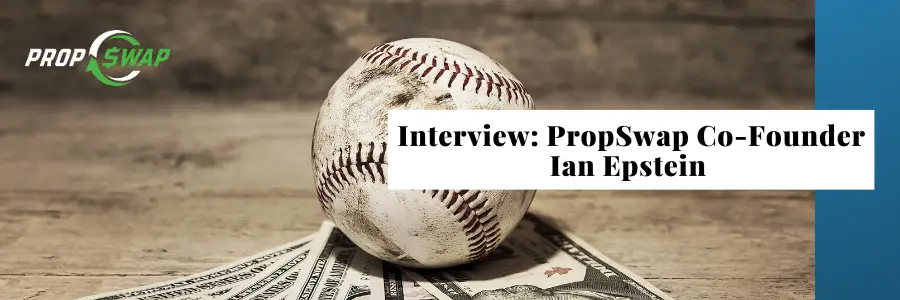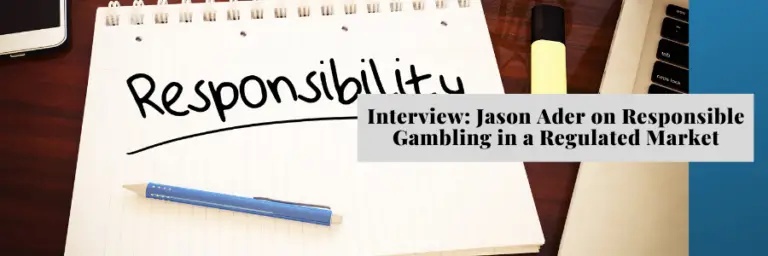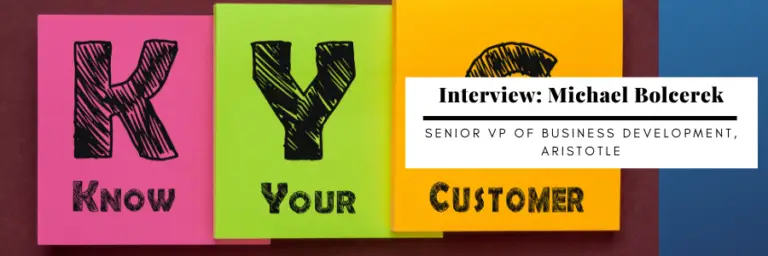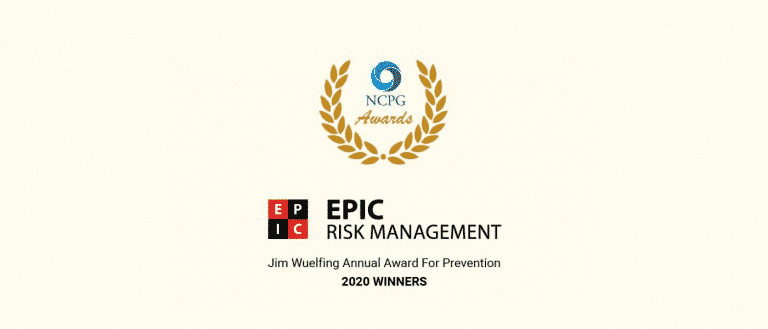PropSwap And The Secondary Sports Betting Market

This is the second installment of Betting USA’s deep-dive into the companies offering alternative products in the absence of, or alongside, legal online gambling and sports betting.
In Part 1 of this series, Betting USA talked to Peter Sullivan, the CEO of Jackpocket, an online lottery courier service operating in several US states.
In this installment, we talk with Ian Epstein, the co-founder of PropSwap, a secondary marketplace (think StubHub) that allows users to buy and sell sports bets.
Epstein covered a lot of ground during the interview, explaining everything from account registration and buying and selling sports betting tickets, to the company’s focus on compliance and the evolution of PropSwap in a post-PASPA-repeal world.
How Does PropSwap Work?
Steve Ruddock: For readers who may be unfamiliar with your company, could you explain Prop Swap?
Ian Epstein: PropSwap is a secondary marketplace for people to buy and sell sports bets.
Customers who have placed a bet at a legal, licensed US sportsbook can post their ticket for sale, at a price they set, and we will help them find a buyer.
PropSwap allows customers to cash out their tickets before the game/event is over, either for a profit or for a loss. At the same time, buyers get some of the best odds in the world, because they’re buying directly from another person.
The Prop Swap Customer Experience
Steve Ruddock: Can you walk me through the account creation process, and how a customer lists or buys sports betting tickets?
Ian Epstein: Anyone in the country can register a PropSwap account and view the tickets that are for sale. However, to purchase a ticket, that user must be located in 1 of our 14 approved states. Once a deposit has been made, the user can use those funds to purchase tickets and/or submit bids on tickets. For selling, anyone can sell a ticket from anywhere.
For example, if you live in Washington (which is not an approved state for buying) and made some bets while you were visiting Las Vegas, and then went home, you could list those tickets for sale on PropSwap. When your ticket sells, you’re notified via email and given instructions on how to mail it to our Las Vegas office. Once we receive the ticket, we verify it with the issuing sportsbook. Once the ticket is verified, the funds are then available for the seller to withdraw via paper check (ACH is coming soon).
At that point, PropSwap maintains possession of the ticket on behalf of the buyer. That allows the buyer to easily re-sell the ticket without having to mail it anywhere. If the ticket ends up winning, then we ship it to the buyer, and it is their responsibility to cash it with the casino. Every sportsbook in the country has Mail Pay instructions on the back of the ticket. That allows our buyers to cash a ticket without having to go to that sportsbook physically.
Steve Ruddock: What are some of the features users would find in the app?
Ian Epstein: The bidding feature is extremely popular. It allows buyers to find great odds on the teams they like. A lot of buyers are shocked by how frequently their bids are accepted. We always say, sellers will often take less when it’s offered to them. It also gives sellers great control over their listings. They can set a “Minimum Bid,” so they never have to see a bid below an amount they don’t want, and when they receive a bid, they have the option to accept, reject or counter it.
PropSwap Takes Compliance Very Seriously
Steve Ruddock: From our previous conversations, you take compliance very seriously. What jurisdictions are you currently active in, and what is it about those states that made them first-movers?
Ian Epstein: We take compliance very seriously. One of the things I feel very strongly about is the great work Matt Holt is doing at US Integrity. Let me be clear; I don’t think it should be incumbent on the sportsbooks to pay any sort of “integrity fee.” But I do think it should be the league’s and conference’s responsibility to make sure they are doing all they can to ensure the integrity of their game. And one of the ways they can accomplish that is using a third-party service like US Integrity to monitors the activity on the primary market (sportsbooks) as well as the secondary market (PropSwap).
USI monitors PropSwap’s transactions to see if any of the activity correlates to abnormal wagers made at sportsbooks with regards to a particular team, player, or even referee. They also monitor things such as tickets being sold on events with prohibitions, like a ticket on Rutgers that originated from a New Jersey sportsbook.
We currently allow users to purchase from the following 14 states: Arkansas, California, Connecticut, Illinois, Indiana, Kentucky, Massachusetts, Mississippi, Nevada, New Jersey, New York, Ohio, Pennsylvania, West Virginia.
In regards to what made these states the first 14, it’s a variety of factors, and I’ll just say these were the states we feel most comfortable operating in at this time.
Steve Ruddock: What regulatory requirements do you work within?
Ian Epstein: PropSwap is not a sportsbook operator, and therefore does not need to adhere to the same set of requirements that a gaming licensee would need to. That being said, we have made it a point to make sure regulators are comfortable with our business before operating in their state.
We use geolocation to ensure users are located within one of our approved states when they deposit funds. And all users must be 21 to register for an account. However, it should be noted that if you buy or sell on PropSwap, at some point, you will touch a sportsbook operator. Meaning, if you sell a ticket – that would have required you to go into a sportsbook and place a bet. And if you buy a ticket and it wins – that will require you to cash it with the sportsbook. So if a user tries to skirt our age policies, they will eventually run into issues with the casino.
We have also had a dialogue with regulators from multiple states in regards to sharing in their “self-exclusion” list. Meaning, if a resident has placed themselves on a gambling exclusion list, regulators have expressed interest in those residents also not being able to use PropSwap. That’s an idea we are very open to.
Prop Swap Future Expansion in the US
Steve Ruddock: What precludes you from entering other states, and what are you doing to resolve these roadblocks?
Ian Epstein: As mentioned before, we allow buying from 14 states. That doesn’t mean that buying is against the rules in 36 states; it just means those are 14 states we feel comfortable operating in at this time.
We fully intend to expand that number during 2020. But the factors on what determines whether or not we enter a state can vary, and there is not a set “checklist” that we follow before we enter into a new state. But one thing does remain constant; before we enter into any new state we always let the regulators know ahead of time. We feel very strongly that we want the regulators to hear the information from us and be able to get the facts about how PropSwap works, as opposed to reading an article or hearing an ad.
PASPA Repeal Was Very Good for Business
Steve Ruddock: Your product launched well before the repeal of PASPA and the explosion of sports betting across the country. How has this affected business and your overall business strategy?
Ian Epstein: The repeal of PASPA was tremendous for our business. Prior to 2018, we felt as though we could operate a comfortable business selling Nevada tickets exclusively. Perhaps not take over the world, but we could be a cool niche business. But when PASPA was overturned it was like the floodgates opened. Our supply of tickets went through the roof because now we have people selling Nevada tickets, but also New Jersey, Pennsylvania, Mississippi, and so on.
The legislative momentum following the PASPA decision has also expanded the number of sportsbooks in the country. That’s led to better price shopping for the bettor. In Las Vegas, you have had a ton of consolidation amongst sportsbooks, but in New Jersey and other states, you have operators fighting for business. Competition is great for the consumer.
To that end, I think Colorado is going to be a super interesting state to watch. For the first time, you are going to see some of the best operators in Las Vegas, which make their name on having great odds and a big menu, versus the best operators in New Jersey, which make their name on having the best promotions. Sports bettors in Colorado are going to be in for a real treat.
The other thing I’ll say about how the repeal of PASPA has benefitted PropSwap is that we’re able to bridge the gap between regional biases. Meaning, the odds on the Vegas Golden Knights are drastically different in Las Vegas compared to New Jersey. So someone in New Jersey can make a bet on the Knights, list it for sale on PropSwap for more than they paid, and someone in Las Vegas can purchase it and still get better odds than what’s available at their local book.
Rebutting the Naysayers
Steve Ruddock: Any product tied to gambling is going to come under fire. How do you counter the notion that PropSwap is skirting gambling laws?
Ian Epstein: We’ve been in business since 2015 and have had many conversations with regulators from all over the country, and not one of them after a face-to-face meeting or phone call has said afterward, “PropSwap is a sportsbook.” So we feel pretty confident about where we stand in the sports betting ecosystem.
But, I’ll give you the same explanation I give regulators: the main difference between PropSwap and a sportsbook, is that there are no new wagers created on our platform. Every ticket sold originated from a legal, licensed sportsbook. If you want to bet $1,000 on Kansas to Win the Championship and you go to PropSwap.com, and all you see is a $100 ticket, then that’s all that is available to you. When you make a bet at a sportsbook, that’s where the wager takes place. After that, that ticket becomes your property, and you’re able to do whatever you’d like with your property – give it to a friend, tear it up, or sell it on a secondary market.







